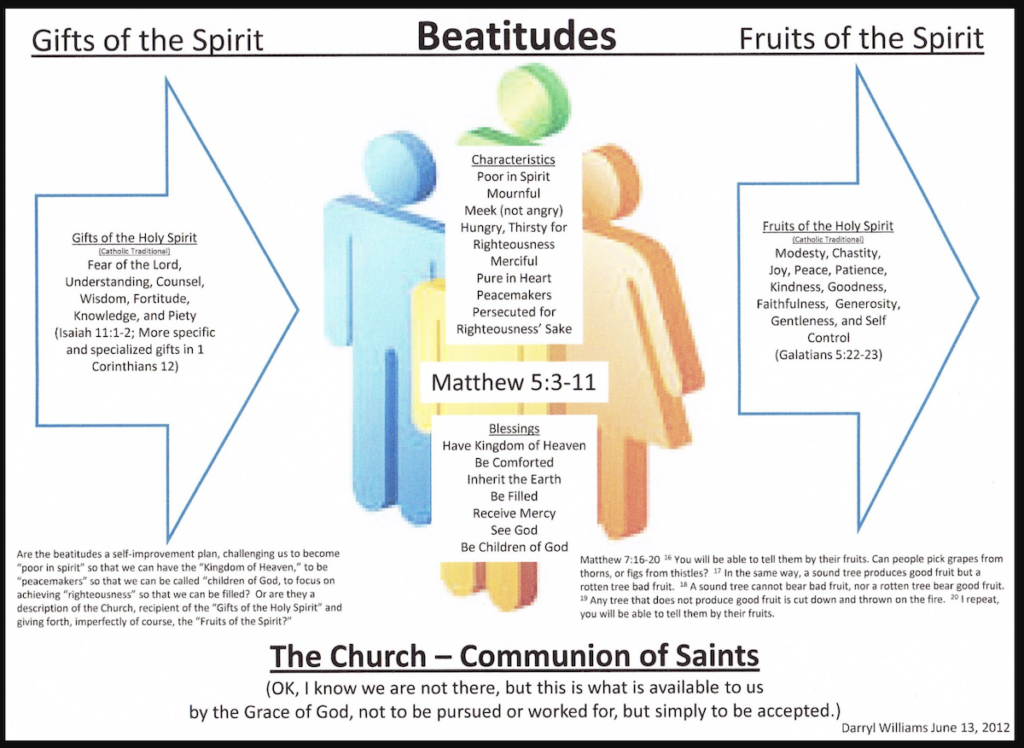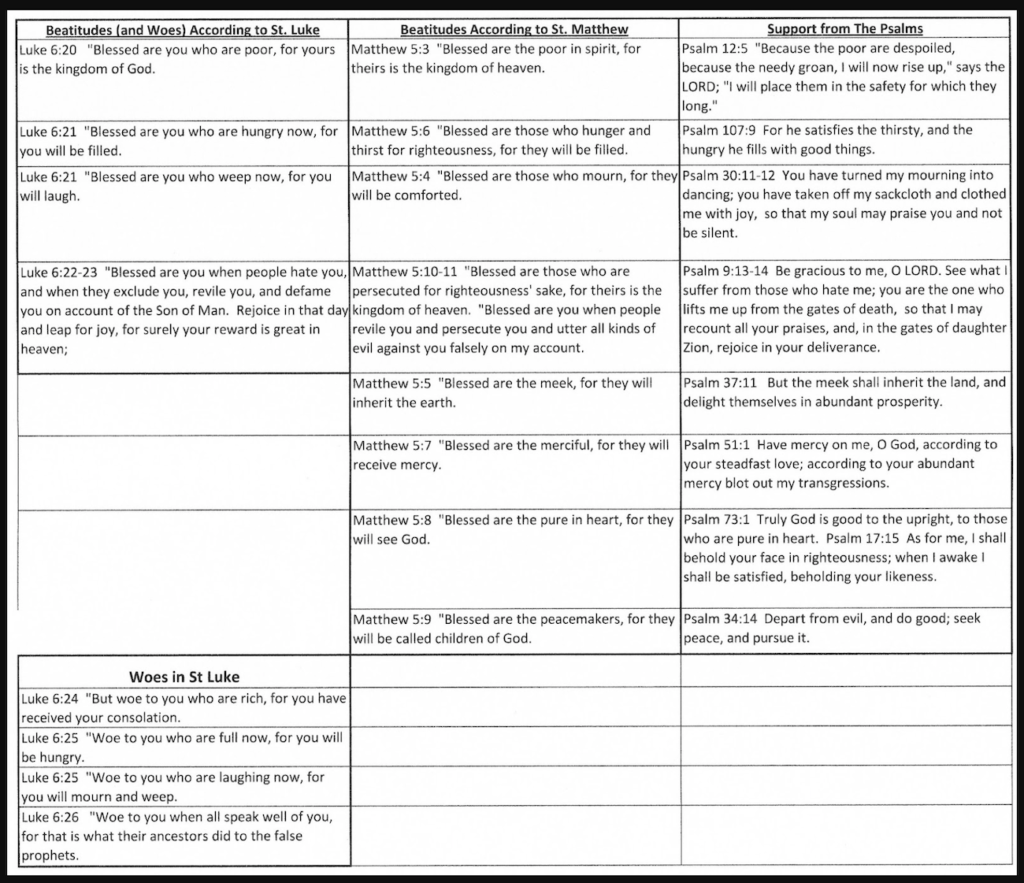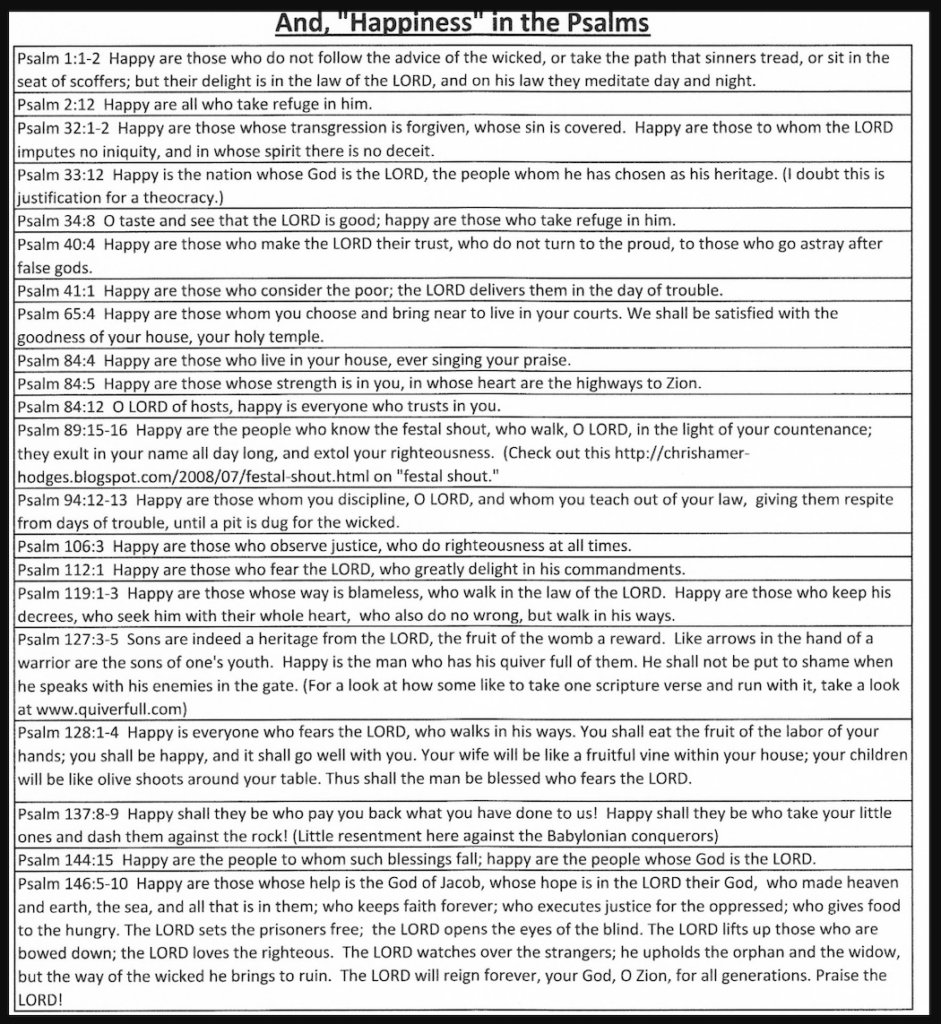I have been following some pastoral advice and meditating on The Beatitudes for the past few weeks. I read Living the Beatitudes Today by Dodd and Heaven in Our Hands by Groeschel. And I actually read The Beatitudes in Matthew 5 a few times.
Immersed in today’s goal-oriented American culture, it is easy to read these verses as a sort of self improvement plan or a way to categorize ourselves. If we want to be blessed, we need to become poor in spirit. If we want to be shown mercy, we need to become merciful. If we want to be recognized as children of God, we had better be making some peace. Probably none will raise their hands for persecution. Now, all who want to be blessed go to Table A. Those who want to be shown mercy go to Table B. Etc. There will be trained discussion leaders at each table.
But it seems to me that the Beatitudes are more a description of the Church, it and its membersbbeing the recipients of the gifts of the Holy Spirit and yielding, as is natural, the fruits of the Holy Spirit. Jesus was perhaps just stating facts rather than issuing challenges. The gifts of course are free and there for the receiving. And, if we receive them, we are changed and we are blessed and others are blessed through us and we are closer to the Kingdom of God and all those other good things, not perfect, but moving in that direction.
So, maybe we need to relax and enjoy and receive the gifts and let the blessings flow through and just give up on the self-improvement activities as means of getting closer to God.

It is probably worth pointing out some issues around interpretation and understanding of the Beatitudes. One is that little word that for 400 years or so was translated into English usually as “blessed” but, in newer translations as “happy.” There is no point in reinventing the wheel here, so take a look at this posting for a good explanation of how “happy” just doesn’t carry the weight of the original Greek or Hebrew. As a long time pastor I once knew liked to say, “Happiness depends on happenings.” The Peace of God, “blessedness,” does not.
It is also worth noting that the beatitudes in St. Luke’s Sermon on the Plain are simpler, shorter, and fewer than those in St. Matthew’s Sermon on the Mount. One could even say they are different. And, St. Luke’s version includes those four troublesome woes immediately after the beatitudes. Bible scholars have various explanations for these differences, all of which depend on our understanding and acceptance of the simple fact that nobody from CNN or Fox news was following Jesus around recording every step he took and every word he said for distribution on YouTube. We also have to understand that the Gospel writers had different slants on the true teachings of Jesus depending on their audiences and situations. And it helps to understand that Jesus knew Holy Scripture (Our Old Testament) intimately and that his message is often an expansion or continuation of it. So, the answer to which version of The Beatitudes is correct is, of course, both of them. And not only that, we can beneficially meditate as well on the twenty beatitudes found in the Psalms. Click on these summaries for high resolution versions.

